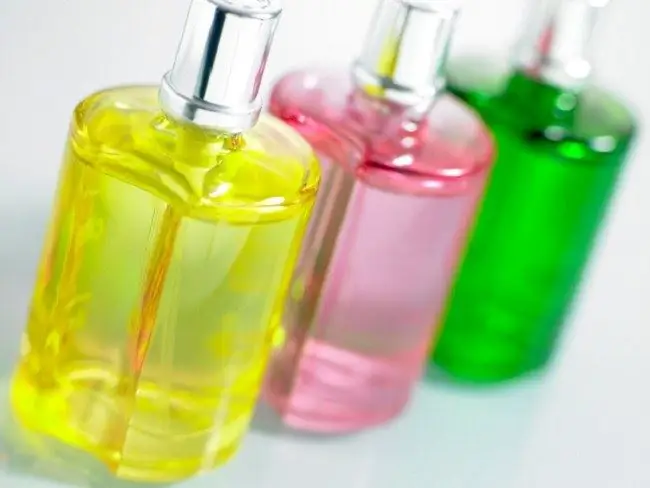- Author Nora Macey macey@family-relation.com.
- Public 2023-12-16 10:17.
- Last modified 2025-01-23 08:47.
The history of the "Triple Cologne" is more than 300 years old. The cologne was invented by the German perfumer Giovanni Maria Farina. Improving the recipe received from his uncle, Giovanni created fragrant water, which he called "Cologne Water". The name "Triple" cologne received later - already in the time of Napoleon.

Two colognes in one bottle
Initially, the composition of the "Cologne Water" included, in addition to alcohol, oils of mandarin, grapefruit, lemon, orange, as well as oil essences of herbs, cedar and bergamot. "Cologne water" has become widespread in Europe. In 18th century Europe, as you know, they did not like to wash, but they loved to anoint their bodies with various aromatic compounds. The cologne with a bright rich aroma fell in love with the Europeans: it well hid the smell of their unwashed bodies.
In 1810, in one of his decrees, the Emperor Napoleon gave the order to publish the composition of all medicines. "Cologne Water" fell under the list of medicines, so the owners of the perfume business had to go for a trick. They called their healing water cologne and added three additional ingredients to its composition: bergamot, neroli and lemon. It so happened that "Triple Cologne" owes its appearance to Napoleon.
The composition of the "Triple Cologne"
Modern "Triple Cologne" contains 64% alcohol and a whole bunch of natural essential oils: sage and nutmeg oil, geranium, coriander, lavender, neroli, lemon, bergamot. This unique cologne has an antiseptic, warming, wound healing and soothing effect. "Triple cologne" lubricate wounds, abrasions, cuts, insect bites. Among girls, there is an opinion that there is no better remedy for acne and inflammation on the face than "Triple Cologne".
The French brought the "Triple Cologne" to Russia in 1812. Our compatriots liked the cologne, so much so that they decided to open an enterprise for the production of miraculous water. And it was not just anyone who made the "Triple Cologne" in Russia, but Heinrich Brocard himself, the founder of Russian perfumery. After the revolution, the factory was nationalized and continued its activities under the name "New Dawn". The proletariat liked the "triple cologne", so its release continued until today.
Surprisingly, "Triple Cologne" is still popular today. On the English-language Internet, you can find statements by perfumers discussing Triple Cologne as a niche fragrance. Elastic, tart, fresh scent evokes nostalgia not only for us: Europeans recall with pleasure the good old "Cologne Water" and draw inspiration from its aroma when creating new perfume compositions.






